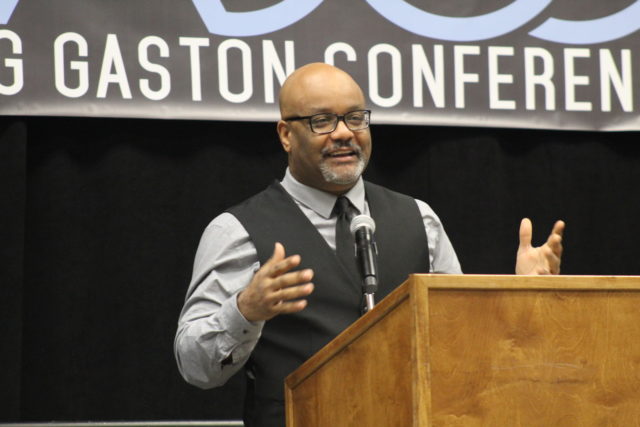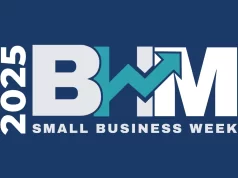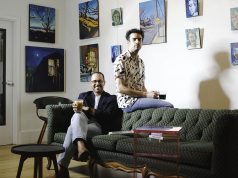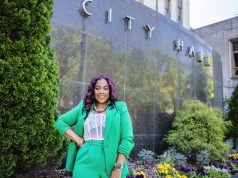
By Ameera Steward
The Birmingham Times
Speaking at the 15th annual A.G. Gaston Conference this week in Birmingham, Dr. Boyce Watkins, author, economist and political analyst, said he knows what it’s like to live in a community with a heavyweight figure who leaves a lasting impact.
Watkins grew up in Louisville, Kentucky, home of legendary heavyweight champion Muhammad Ali, who was that city’s A.G. Gaston, he said.
No child grows up in Louisville without knowing Muhammad Ali, “so no child in the city of Birmingham should grow up without knowing about A.G. Gaston or at the very least knowing his principles,” said Watkins, “. . . unlike like a lot of us as little black boys, [A.G. Gaston] got exposed to different ideas about how to make your money….[He] got something a little different and this shaped him.”
Watkins, author of “Black American Money”, said he believes Gaston’s teachings should become a part of the Birmingham City Schools curriculum and “implemented into the educational process for every child in this city.”
“Mr. Gaston was a great man because he understood basic things that you don’t learn in business school, but I know he knew these things like the back of his hand,” Watkins said. “He understood little things like basically building economies and building systems of your own …he also understood that to build an economy, you kind of need three markets…a market for capital, a market for contractors and a market for customers.”
Watkins also said, “when A.G. Gaston succeeded, hundreds of others succeeded because of his success. If he’d gone off and worked for some corporation…then he would have been successful by himself and those hundreds of people would have been left back in the hood.”
Another speaker of note during the conference, Angela Rye, a CNN political analyst, said African-Americans need to better define their own narrative.
“We can’t change our story, we can’t shift our paradigm until we repair what’s broken in our own minds about our own stories, and there are a lot of broken pieces,” said Rye. “You have to determine what defines you, what defines us, what defines our interdependent relationship, what defines our community and stop letting other people, external factors decide that for us. That’s been happening for 400 years and it’s never served us well.”
Blacks have to redefine power and that power, “as Dr. King defined it is the ability to achieve purpose.”
“And if that is real power then our collective power would move us to ensure we’re always supporting one another,” she said. “It would ensure that we are relying upon one another in ways that build up the community. We have to deconstruct so much nonsense to ensure that we’re able to develop our real stories and develop a different legacy.”
The two-day conference began on Tuesday at the Birmingham Jefferson Convention Complex and opened with a luncheon and a panel that remembered Dr. Gaston, the prominent Birmingham entrepreneur and businessman.
“Certainly, he’s a man who left his mark on Birmingham and left his mark on society,” said Bob Dickerson, executive director of the Birmingham Business Resource Center and co-founder of the conference. “Most of us dream about doing that, and all of us do to a certain extent but Gaston certainly left a big mark…and I certainly appreciate what he did for my life and for my career.
Dickerson said that he is often asked, “How did you know A.G. Gaston?” and that the easy answer would be to say that he worked for him, which he did.
“But the truth of the matter is, if you grew up in Birmingham, Alabama, especially if you went to church you knew him because his picture was on the fans…if you picked up a fan…what you saw was Dr. Gaston’s picture. He understood branding, he branded himself, he branded his face, he branded him and his wife,” said Dickerson. “If you went to church anywhere in Birmingham and perhaps in other parts of Alabama then you knew what Dr. Gaston looked like and you knew who he was…you knew the contributions that he made and he made them for so long in this community.”



